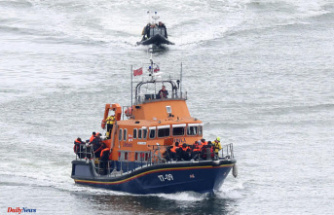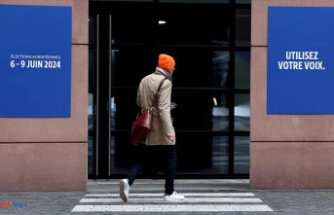Many have been happy about the cheap 9-euro ticket in the past three months. It was an enormous challenge for the operators of traditional railways and should not become a permanent solution.
Bad Doberan/Putbus (dpa/mv) - The 9-euro ticket, which expires on Thursday, is not a permanent solution for the traditional railways in the north-east. "Then we can do it," said Wenke Eggert from the "Molli" baths railway of the German Press Agency. "We won't get that many compensation payments for it to work." Similar feedback came from the Rügen baths railway "Rasender Roland".
Eggert said they drove under full load. "Everything that was attached to the car was also attached." That meant eleven cars instead of eight and was the maximum, since the two trains running between Kuehlungsborn and Bad Doberan could otherwise not pass in Heiligendamm. Despite the additional cars, the utilization was almost always between 90 and 100 percent. Exact evaluations are still ongoing.
The steam-powered "Molli" is a tourist attraction. "Of course, given the price, it was very easy for everyone to drive three or four times here." The house tariff, like that of the "Racing Roland" on Rügen, provides for higher prices. The summer months in particular are always in high demand, explained Eggert. Due to the validity of the 9-euro ticket, there is a big financial cut here. You will probably stay at the expense.
"We needed a lot more staff because the trains were so long." Added to this is the greater wear and tear, but also the greater need for hard coal. Eggert expects that there will also be cheaper options for driving in the future. "It will come." It is important that the costs are covered.
The steam-powered narrow-gauge railway "Rasender Roland" traveling in the southeast of Rügen also ran with the maximum possible train length of ten cars, said Thomas Schneider from the operator Pressnitztalbahn GmbH. The utilization on certain sections of the route was often up to 150 percent. He also referred to the higher costs and the therefore higher house tariff. "Tourist railways, including public transport, should therefore remain excluded from the scope of further cheap tickets in the future."












